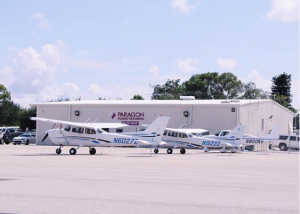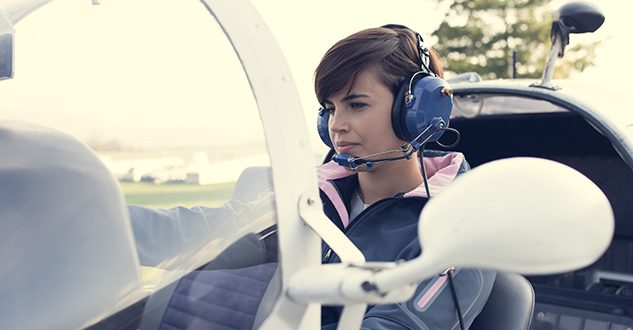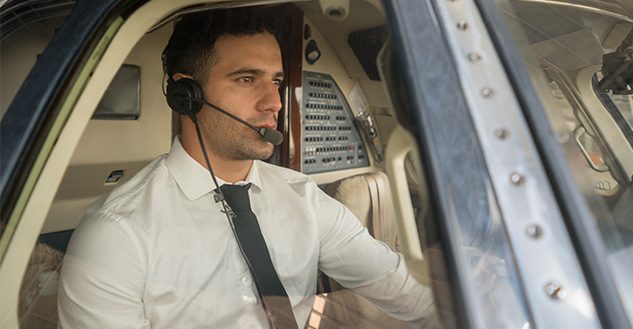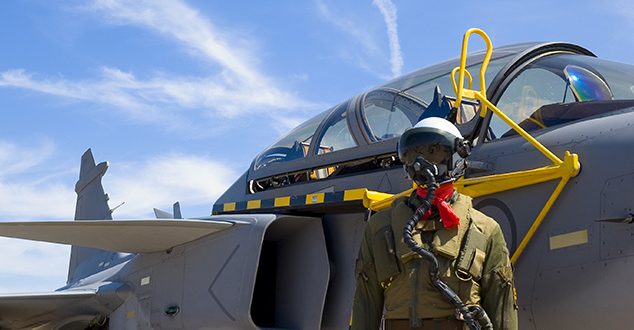Frequently Asked Questions About Being a Commercial Pilot
If you’ve been considering pursuing an office in the sky, Paragon Flight would like to address several frequently asked questions about being a commercial pilot. Every decision should be an informed one, so read on to discover more about working as a pilot.
FAQs about Commercial Aviation
 What jobs are available for commercial pilots?
What jobs are available for commercial pilots?
Commercial pilots fulfill a range of roles throughout all industries. A sampling of positions includes the following:
- Airline Pilot – Domestic or International
- Cargo Pilot – FedEx or UPS, for example
- Aerial Photography and Government Air Service (surveying, border patrol, law enforcement, etc.)
- Agricultural and Crop Duster Pilot
- Emergency and Rescue Pilot
- Corporate Pilot
- Charter and Private Pilot
- Banner Towing Pilot
What are the regular duties a commercial pilot might perform?
Commercial pilots can expect to perform all of the following duties in a regular workday:
- Perform a pre-flight inspection of the aircraft regarding mechanics, systems, and weight;
- Evaluate the flight itinerary and weather conditions prior to takeoff;
- Communicate with the control tower;
- Navigate and fly the plane according to the set route;
- Monitor the aircraft performance throughout the flight;
- Takeoff and land safely and smoothly;
- Complete a post-flight report.
What is the typical salary for a commercial pilot?
The salary for commercial pilots depends on the position, experience, company, location, etc. The average starting pay for entry-level pilots is $80k, and pay for airline captains may be greater than $280k. This incredible increase given the shortage of qualified pilots makes now the ideal time for going ahead with aviation training.
How can I become a commercial pilot?
Paragon Flight offers an accelerated program to help you achieve your amitions and become a skilled, safe commercial pilot quickly. The steps in the P3 Professional Pilot Program include the following:
- Private Pilot (PPL) – 0-10 weeks
- Instrument Rating (IFR) – 18 weeks
- Commercial License, Single Engine and Multi Engine (CSEL and CMEL) – 30 weeks
- Certified Flight Instructor – 38 weeks
What are the requirements for becoming a commercial pilot?
Before participating in our P3 Program, you’ll need to meet specific requirements including all of the following:
- 18 years old
- High school graduate or GED holder (college preferred)
- One professional character reference
- One personal character reference
- Clean driving record
- Clean criminal background check
- Pass a cognitive/behavioral assessment
- Clean record with the FAA
- FAA 1st Class Medical Certificate
- Fluent and literate in the English language
- Full-time availability
- Moral strength, work ethic, ambitious
Do I need a college degree to become a commercial pilot, and what should I study while in college?
A college degree, while not necessary to becoming a commercial pilot, will be helpful in standing out as a well-qualified applicant. As for coursework, aspiring pilots serve themselves well by loading up on science, math, geography, and foreign languages. With this educational background, you’ll be in a better position to climb the commercial pilot career ladder.
How difficult is it to become a commercial pilot?
As with anything in life, if it’s valuable, it’s worth the effort. The P3 Program will require effort, but with the team here at Paragon Flight and your effort, you’ll overcome the challenge and be well on your way to a long-lived, successful career.
With answers to the above frequently asked questions about being a commercial pilot, are you ready to become one? Reach out to Paragon Flight to discuss our P3 Professional Pilot Program by calling our team at (239)747-0056 today.




